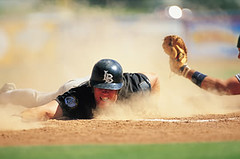Scooter Libby Takes One for the Team

I have an op-ed today in the Rocky Mountain News, Scooter Libby Takes One for the Team. It's about why I was rooting for both sides in different ways, and why, although I think the verdict was correct, I feel cheated. Hope you'll read it.
| < "Doogie Howser of Terrorism Cases" Defendant Gets 15 Years Less Than Government Asks For | "Idiot Liberals": A Defense of Congressman Obey > |



